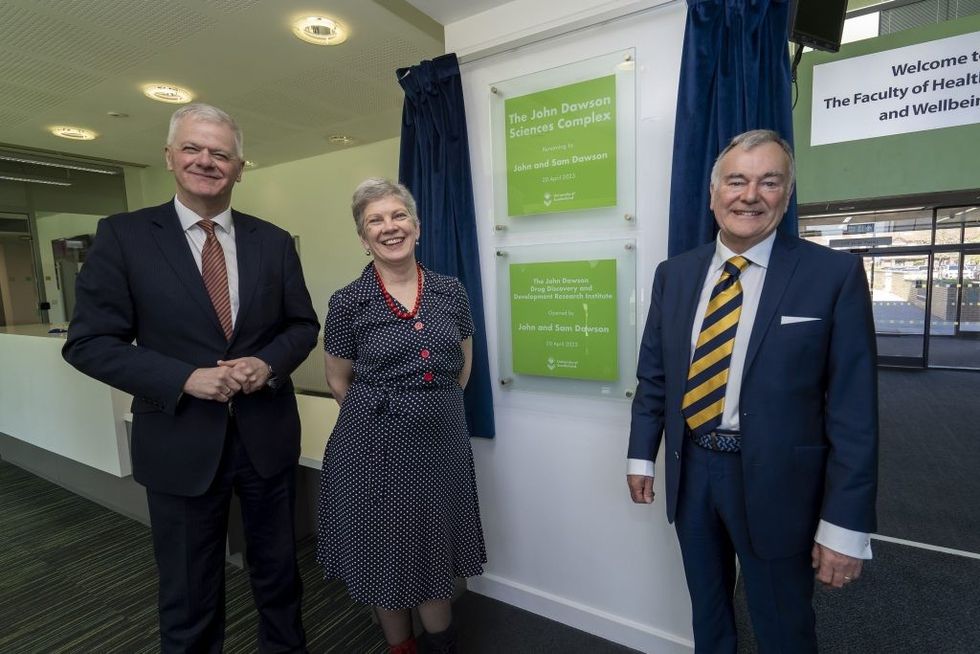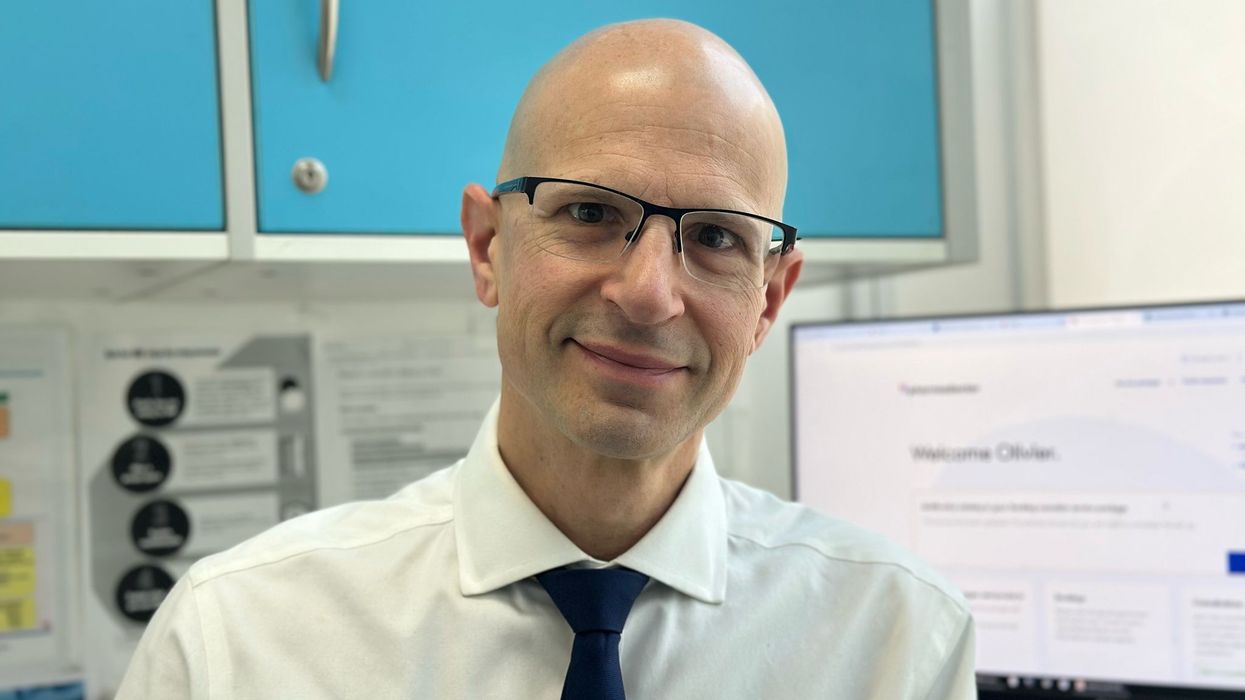John Dawson, the founder and former CEO of Alliance Pharma, has donated £5million to the University of Sunderland towards the creation of a new drug research centre.
The donation – the biggest in the university’s history – will create the John Dawson Drug Discovery and Development Research Institute to improve health and wellbeing of millions of people worldwide.
The new centre has been named after the pharmaceutical entrepreneur and Sunderland graduate who, alongside wife Sam, has provided the funding.
He and Sam were on Thursday (April 20) joined by specially invited guests from across the region’s health, education, and business communities, to launch the Institute housed in the University’s Sciences Complex.

Unveiling a plaque inside the building, John said: “It’s an absolute honour and privilege to be able to launch the new Drug Discovery and Development Research Institute at the University of Sunderland today.
“It’s been wonderful to be back on the campus and see the incredible developments that have taken place since I studied pharmacy here more than 50 years ago.
“I was immediately impressed at what has been achieved in that intervening half-century and I’ve been delighted to assist the University continue its development, particularly in the health arena.
“I hope the launch of this institute will mark the next phase in the University’s evolution and I’m very much looking forward to working with the team as they bring their projects to fruition.”
The new institute will play a key role in turning laboratory research and innovation into life-changing therapies for clinical practice, working closely with the NHS and the pharmaceutical industry.
It will also bring together expertise in clinical, laboratory and data science to address issues of local, national and international importance and focus on on areas including the discovery of new medicines for the treatment of rare inherited metabolic diseases -- developing targeted delivery methods and technologies to improve pharmaceutical manufacturing processes as well as the development and application of machine learning tools for early disease detection.

Sir David Bell, Newcastle University’s vice-chancellor and chief executive, said: “I am enormously grateful to John and Sam Dawson for their immense generosity in supporting this new Research Institute in the crucially important fields of drug discovery and development.
"The fact that John is ‘one of us’ is an added bonus as his life and career demonstrate the good that our graduates do in so many different walks of life.”
After graduating from Sunderland Polytechnic in 1970, Newcastle-born John went on to build a successful career in the pharmaceutical industry. He founded the prescription medicines and consumer healthcare company, Alliance Pharma, in 1996.
Commenced trading in 1998 with just two full-time employees in the UK, the company expanded over the next 20 years. John turned it into an international pharmaceutical powerhouse with sales now exceeding £170m, operating out of nine offices in eight countries with more than 280 employees.
He stepped down from Alliance Pharma in 2019.











